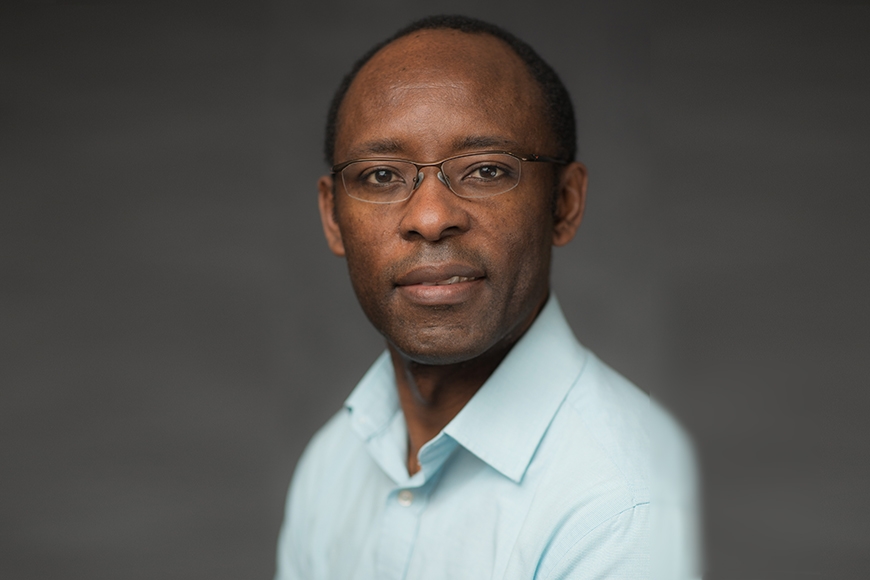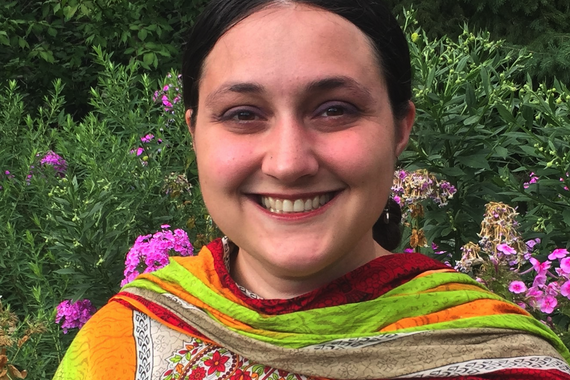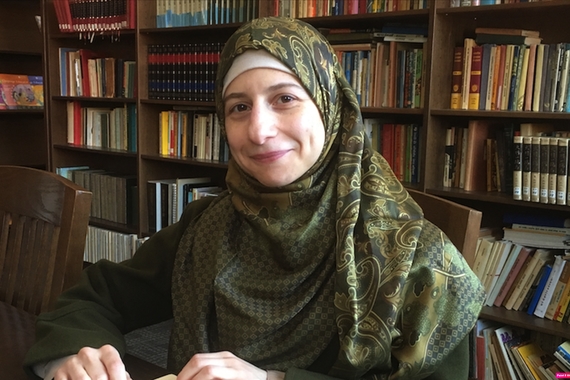Breaking Down the Simple: Ramon Fonkoué on the Postcolonial Condition
“What’s really great about teaching in this time is that there's a general inclination, no matter what political discourse outside, that some questions need to be investigated—some conversations need to take place.”
Ramon Fonkoué, a specialist in West African literature and film, knows from his research and personal experience that the legacy of colonialism is still with us. He invites his students to ask hard questions and recognize the complexities of the societies they are studying and the postcolonial experience in general. A new associate professor to the Department of French and Italian, Fonkoué strives to create a space for students to address the questions of immigration, intersectionality, and the harmful effects of simplification within African studies.
More Complex Than Imagined
Fonkoué grew up in Cameroon, in West Africa, where he received most of his education before moving to Oregon to complete his graduate studies. The culture shock he experienced when he first arrived in the US led him to recognize some of the ways that colonialism had shaped his life and the lives of many others.
“I quickly discovered the stark contrast between Cameroon and the United States,” Fonkoué says. “For example, the way the past is valued and preserved. In the US, you’ll find a memorial—like the Veteran’s Memorial—everywhere. France has a Tomb of the Unknown Soldier in the smallest hamlet you visit. But in Cameroon, there is no monument. There's nothing done to preserve the memory of the past. No trace of the plight of the people during colonization, their longing for independence, or their struggle for sovereignty. There's no trace of that history. It’s then that I started to realize what it meant to be colonized.”
As an African immigrant, it’s important to Fonkoué that his kids understand how to navigate a world that differs depending on where you live, to know their roots, and for them to develop their global consciousness. “My children were born here,” Fonkoué says “They’re growing up, wondering about some of the crises that we are witnessing today—especially American society—and we have conversations at home about the difficulties that a multicultural society like ours is facing.”
After starting his career at Michigan Tech, Fonkoué joined the University of Minnesota, excited to bring some of his research in African literature and film into the questions he will explore with his students. “My research focuses on identity, culture and current issues in postcolonial societies in Francophone Africa and the Caribbean,” Fonkoué explains. “I investigate the potential to bring in different disciplines and use them to better understand a postcolonial society and what I call the postcolonial condition. I argue that colonized societies are much more scarred by the colonial experience and are much more complex than often imagined.”
Questions That Cannot Be Ignored
Grappling with the history and legacy of colonialism is challenging. But Fonkoué believes that students realize that confronting this history is not optional. “I think students are understanding that they are growing up in a world where they will struggle more than their parents in some aspects,” he says. “They have questions that cannot be ignored.”
Colonization doesn’t end with independence. It leaves a long-lasting stain. Fonkoué uses the film King Leopold’s Ghost, based on the book of the same name, to explain how the ghost of colonial occupation still resides within postcolonial societies. “What I emphasize in my work is that colonization wasn’t just a stopover for Europeans. Instead, it was a dispossession. It was an intrusion into other peoples’ cultures, an occupation of the colonized subject’s physical and mental space, which resulted in an obliteration of their personality and their sense of place in the world,” Fonkoué says. “I want my students to gain a better understanding of these societies working to build a sense of self and reclaim what had been taken away, and film is a great resource in this regard.” His interest in cinema and visual representations was born out of the realization that today’s students are the product of a visual culture.
He uses the term “colonial factory” to discuss the outcome of colonization, and argues that the transformation that colonized society underwent was essentially negative and long-lasting. Colonialism created people doubting themselves (including their own race), fascinated by the colonizer’s culture,, often longing for someplace else (the colonizer’s land), a yearning that fuels the desire to migrate. Moreover, colonial discourse created enduring tropes and images that still shape our perceptions of Africans and people of African descent today. Fonkoue also studies the loss of Africa’s cultural heritage over centuries of colonization, and the recent efforts of some African countries to reclaim it. Over ninety percent of African ancient and classical art is currently located in private collections and museums in other parts of the world. “And so,” Fonkoué says, “you can imagine what that means for an entire continent. These are the kind of questions that I invite my students to reflect upon.”
These students inspire Fonkoué. “It’s their intellectual curiosity, their genuine interest in better understanding what's going on in today’s world,” he says. “There's a drive amongst students to explore the questions facing our time because they understand that it is in their own interest. It equips them with a broader perspective on the world that they are going to live in. They know that it's not the same world as their parents’ or their grandparents’, and that the challenges of our time often require venturing out of our comfort zone. They have to face the issues that our society is dealing with to chart their own path.” Fonkoué concludes that his teaching helps students think about the ways in which their own identities as Westerners are tied to empire, conquest, and its long-lasting impact on others.
Space to Question
To start understanding, you have to start to question. While Fonkoué creates a space to do so in his courses, it is up to the students to seek it out themselves. “Many students are realizing that there's been too much simplification on what happened in the past or to what extent the past is still relevant to the present,” Fonkoué says. “I see that in their questions, in the topics that they choose to investigate, in their assignments or in class interactions, whether we are discussing a text or a movie.”
Colonization is not just a question of why or how; it’s a question of “what now?”
“My research equipped me with the tools and the knowledge to better handle the above questions,” Fonkoué says. “Whether I’m at home with my family, or in class with my students.” For students who want to explore questions about the colonial legacy, postcolonial identities, race, immigration, etc., learning from Fonkoué would be a good way to start.


